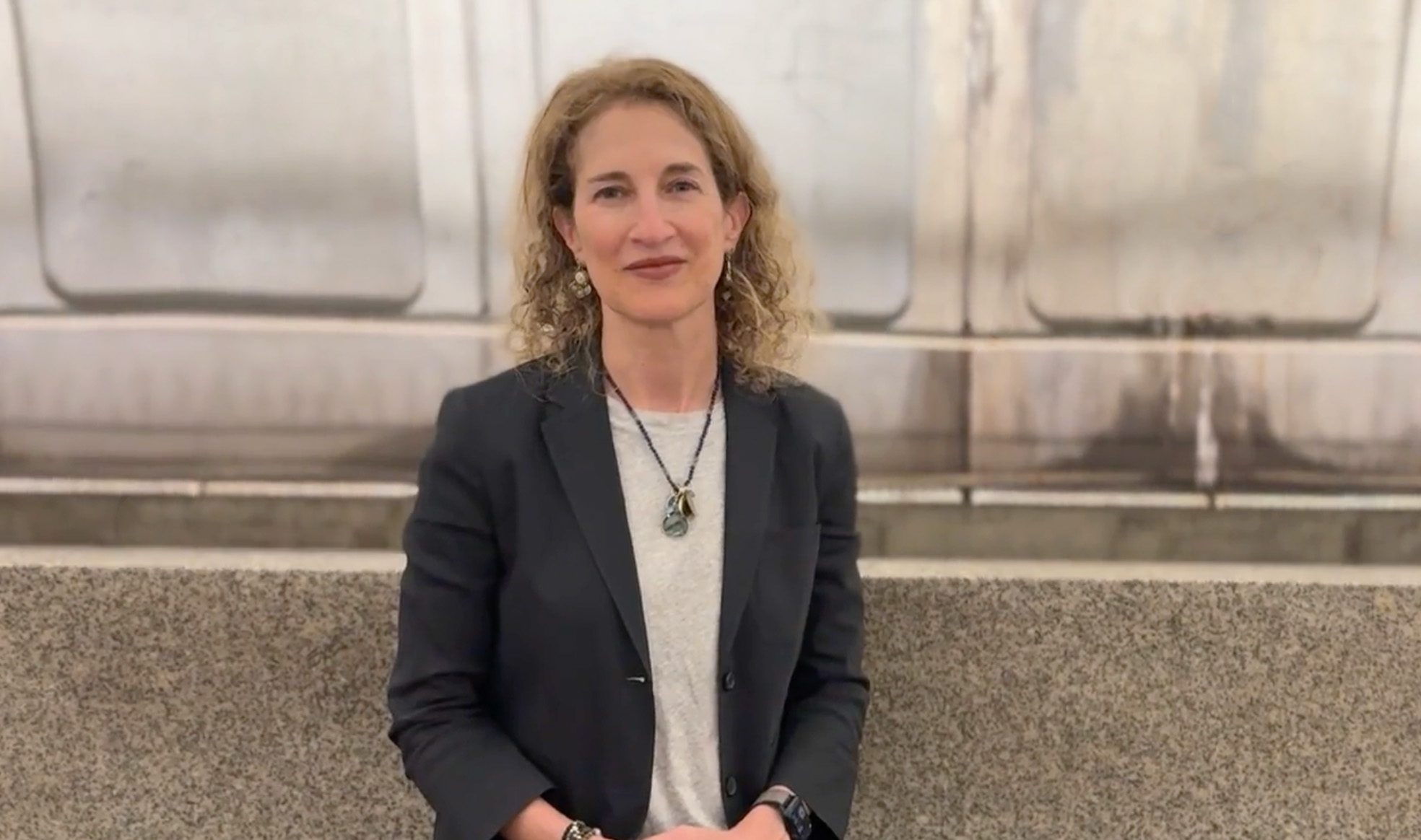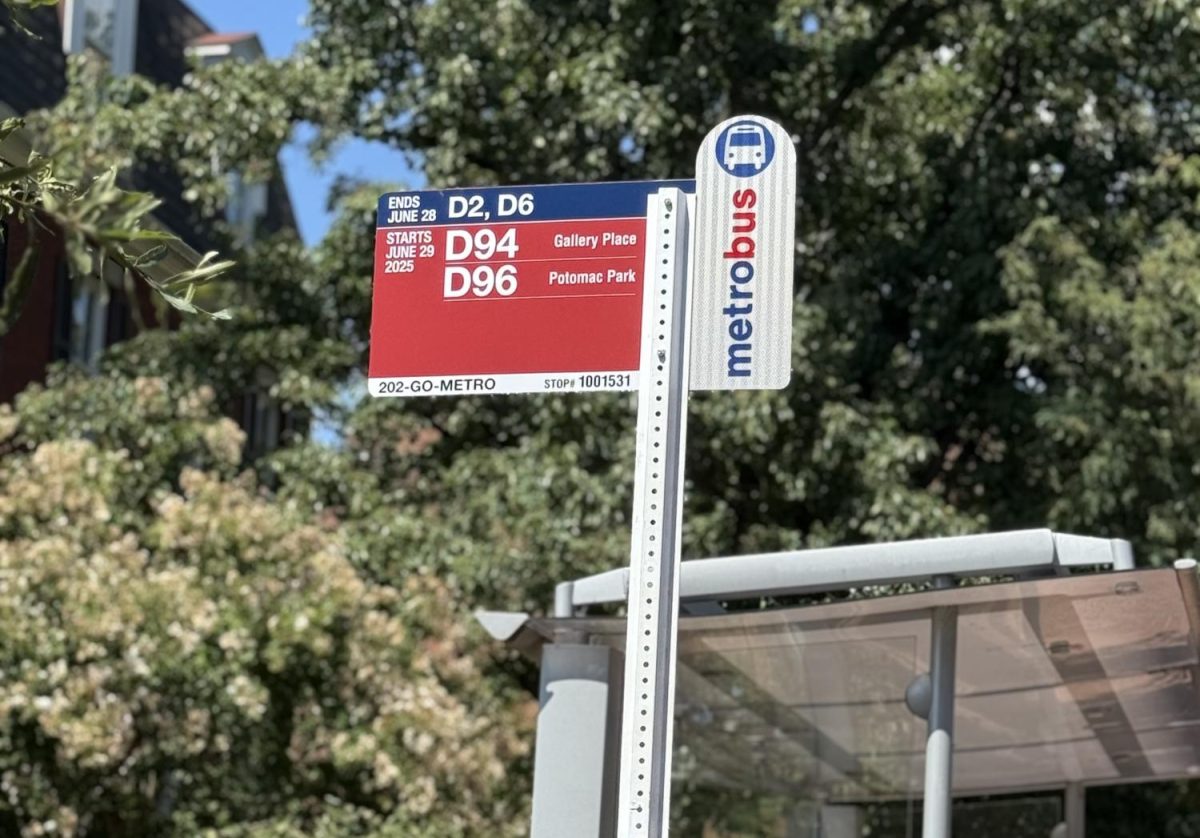A former Democratic National Committee (DNC) official launched a campaign for Washington, D.C.’s non-voting delegate seat in the U.S. House of Representatives, challenging longtime incumbent Eleanor Holmes Norton (D-D.C.).

Norton’s opponent, Kinney Zalesne, previously served as deputy national finance chair at the DNC and co-chair of Women for Harris, a political committee that was part of former Vice President Kamala Harris’ failed 2024 presidential campaign. Zalesne, a D.C. resident for 30 years, argues she can build a stronger long-term plan to protect the District from federal overreach than 88-year-old Norton, who has represented D.C. since 1991.
Zalesne said her candidacy aims to bolster D.C.’s defenses as President Donald Trump ramps up attacks on the city.
“America is in the greatest danger of my lifetime, and D.C. is bearing the brunt of it,” Zalesne told The Hoya. “We’re on the front lines of Trump’s aggression, and I want to help D.C. not only resist this assault, but be at the center of a decisive national turnaround.”
Zalesne’s primary bid comes as D.C. faces public attacks from the Trump administration, which has criticized D.C.’s governance and threatened to “take over” the District. Under federal law, the District elects its own mayor and city council but requires congressional approval on its budget.
Zalesne will face Norton in the June 2026 Democratic primary, attempting to defeat the delegate who has successfully kept her seat for the past 18 elections. Throughout her tenure, Norton has been a leading advocate for civil rights and previously served as the first female chair of the Equal Employment Opportunity Commission, a federal agency enforcing civil rights laws.
Norton has faced recent calls to retire, as she allegedly exhibits increasing signs of aging, including struggling to read remarks and retracting statements to reporters. Norton’s office previously defended her position, saying she has delivered “better results” than many voting members of congress.
Norton’s campaign did not respond to multiple requests for comment.
Charles Wilson, chair of the D.C. Democratic Party, said Norton has a significant advantage in the primary because voters know her name, so Zalesne must establish herself to find a path to victory.
“If the election happened today, it will be the same result — Norton will still win,” Wilson told The Hoya. “Her name is a household name, and it would be very difficult for anyone to mount a credible challenge against her at this time.”
“Zalesne really needs to connect with local voters as to why at this time she would be a better fit to serve in this role than Norton,” Wilson added.
Zalesne’s campaign raised $250,000 the day after she announced her candidacy, according to a press release given to The Hoya. Norton’s campaign raised over $48,000 from January 2025 to June 2025, according to federal data, though she does not appear to be actively fundraising.
Norton’s previous primary challengers in 2024 and 2022 all raised less than $50,000 throughout their campaign, according to federal data. Norton won both primary races with around 80% of the vote.
Zalesne said she has “enormous respect” for Norton but believes she can more effectively protect D.C. from the long-term effects of the Trump administration.
“I want to bring the same relentlessness and fearlessness to the job that she brought to it,” Zalesne said. “I’m focused now on the next 10 years. The threat we’re under and the challenges which we face, this is just the beginning, and I think it’s going to take at least 10 years to be able to turn these challenges around.”
Zalesne’s experience has primarily been in national politics, including starting her career as a White House fellow for then-Vice President Al Gore in 1995. She also led College Summit, now known as PeerForward, a nonprofit organization supporting low-income college students, which she said demonstrates her skill at coalition-building.
Zalesne said she can unite partners to advocate for D.C., pointing to her experience in local organizing and national Democratic politics.
“As I see it, the power of the delegate role is to bring people together across the city and across the country because we need allies in addition to our own selves,” Zalesne said. “We need to build that coalition to have a long-term plan and a broad-based set of partners and allies to protect our city and keep it safe and affordable.”
“That’s what I’ve done my whole life — build coalitions, in government, in business, in nonprofits,” Zalesne added.
In addition to focusing on Trump, Zalesne’s platform touts her public and private sector experience to advocate for public safety, affordable housing and diversifying jobs. Zalesne has also been an outspoken advocate for women in politics, including with her role in Harris’ campaign, and a staunch supporter of Israel, penning an opinion article about Harris’ record of supporting Israel.
Zalesne said she hopes she can convey to voters that protecting D.C. is important to her personally.
“I love this city, I love everything it’s been for me and my family, and I can’t stand to watch it threatened and mistreated by this administration and by this Congress,” Zalesne said. “I don’t think it has to be this way. I think we can get ourselves on a different course.”
Correction: A previous version of the article misnamed the nonprofit Zalesne led as College Success. The article was updated July 28 with the correct name, College Summit.














